- Home
- F. Scott Fitzgerald
The Fantasy and Mystery Stories of F Scott Fitzgerald Page 7
The Fantasy and Mystery Stories of F Scott Fitzgerald Read online
Page 7
‘We’re going through the black air with our arms wide,’ she called, ‘and our feet straight out behind like a dolphin’s tail, and we’re going to think we’ll never hit the silver down there, till suddenly it’ll be all warm round us and full of little kissing, caressing waves.’
Then she was in the air and Carlyle involuntarily held his breath. He had not realized that the dive was nearly forty feet. It seemed an eternity before he heard the swift compact sound as she reached the sea.
And it was with his glad sigh of relief when her light watery laughter curled up the side of the cliff and into his anxious ears that he knew he loved her.
VI
With the long sunny hours Ardita’s idea of the episode as incidental, madcap, a sprig of romance in a desert of reality, gradually left her. She dreaded the time when he would strike off southward.
‘Take me with you,’ said Ardita late one night as they sat lazily in the grass under the shadowy spreading palms. ‘I’d love to reappear in ten years as a fabulously wealthy high-caste Indian lady,’ she continued.
Carlyle looked at her quickly.
‘You can, you know.’
She laughed.
‘Is it a proposal of marriage? Extra! Ardita Farnam becomes pirate’s bride. Society girl kidnapped by ragtime bank robber.’
‘It wasn’t a bank.’
‘What was it? Why won’t you tell me?’
‘I don’t want to break down your illusions.’
‘My dear man, I have no illusions about you.’
‘I mean your illusions about yourself.’
She looked up in surprise.
‘About myself! What on earth have I got to do with whatever stray felonies you’ve committed?’
‘That remains to be seen.’
She reached over and patted his hand.
‘Dear Mr Curtis Carlyle,’ she said softly, ‘are you in love with me?’
‘As if it mattered.’
‘But it does – because I think I’m in love with you.’
He looked at her ironically.
‘Thus swelling your January total to half a dozen,’ he suggested. ‘Suppose I ask you to come to India with me?’
‘Shall I?’
He shrugged his shoulders.
‘We can get married at the first port.’
‘What sort of life can you offer me? I don’t mean that unkindly, but seriously; what would become of me if the people who want that four thousand pounds reward ever catch up with you?’
‘I thought you weren’t afraid.’
‘I never am – but I won’t throw my life away just to show one man I’m not.’
‘I wish you’d been poor. Just a little poor girl dreaming over a fence in a warm cow country.’
‘Wouldn’t it have been nice?’
‘I’d have enjoyed astonishing you – watching your eyes open on things. If you only wanted things! Don’t you see?’
‘I know – like girls who stare into the windows of jewellery stores.’
‘Yes – and want the big oblong watch that’s platinum and has diamonds all round the edge. Only you’d decide it was too expensive and choose one of white gold for twenty pounds. Then I’d say, “Expensive? I should say not!” And we’d go into the store and pretty soon the platinum one would be gleaming on your wrist.’
‘That sounds so nice and vulgar – and fun, doesn’t it?’ murmured Ardita.
‘Doesn’t it? Can’t you see us travelling round and spending money right and left and being worshipped by lift boys and waiters? Oh, blessed are the simple rich, for they inherit the earth!’
‘I honestly wish we were that way.’
‘I love you, Ardita,’ he said gently.
Her face lost its childish look for a moment and became oddly grave.
‘I love to be with you,’ she said ‘more than with any man I’ve ever met. And I like your looks and your dark hair and the way you go over the side of the rail when we come ashore. In fact, Curtis Carlyle, I like all the things you do when you’re perfectly natural. I think you’ve got nerve, and you know how I feel about that. Sometimes when you’re round I’ve been tempted to kiss you suddenly and tell you that you were just an idealistic boy with a lot of caste nonsense in his head. Perhaps if I were just a little bit older and a little more bored I’d go with you. As it is, I think I’ll go back and marry – that other man.’
Over across the silver lake the figures of the crew writhed and squirmed in the moonlight, like acrobats who, having been too long inactive, must go through their tricks from sheer surplus energy. In single file they marched, weaving in concentric circles, now with their heads thrown back, now bent over their instruments like piping fauns. And from trombone and saxophone ceaselessly whined a blended melody, sometimes riotous and jubilant, sometimes haunting and plaintive.
‘Let’s dance!’ cried Ardita. ‘I can’t sit still with that perfect jazz going on.’
Taking her hand, he led her out into a broad stretch of hard sandy soil that the moon flooded with great splendour. They floated out like drifting moths under the rich hazy light, and as the fantastic symphony wept and exulted and wavered and despaired Ardita’s last sense of reality dropped away and she abandoned her imagination to the dreamy summer scents of tropical flowers and the infinite starry spaces overhead, feeling that if she opened her eyes it would be to find herself dancing with a ghost in a land created by her own fancy.
‘This is what I should call an exclusive private dance,’ he whispered.
‘I feel quite mad – but delightfully mad!’
‘We’re enchanted. The shades of unnumbered generations of cannibals are watching us from high up on the side of the cliff there.’
‘And I’ll bet the cannibal women are saying that we dance too close and that it was immodest of me to come without my nose ring.’
They both laughed softly – and then their laughter died as over across the lake they heard the trombones stop in the middle of a bar and the saxophones give a startled moan and fade out.
‘What’s the matter?’ called Carlyle.
After a moment’s silence they made out the dark figure of a man rounding the silver lake at a run. As he came closer they saw it was Babe in a state of unusual excitement. He drew up before them and gasped out his news in a breath.
‘Ship stan’in’ off ’bout half a mile, sah.’
‘A ship – what kind of a ship?’ demanded Carlyle anxiously.
Dismay was in his voice, and Ardita’s heart gave a sudden wrench as she saw his whole face suddenly droop.
‘Don’t know, sah.’
‘Are they landing a boat?’
‘No, sah.’
‘We’ll go up,’ said Carlyle.
They ascended the hill in silence, Ardita’s hand still resting in Carlyle’s as it had when they finished dancing. She felt it clench nervously from time to time as though he were unaware of the contact, but though he hurt her, she made no attempt to remove it. It seemed an hour’s climb before they reached the top and crept cautiously across the silhouetted plateau to the edge of the cliff. And after one short look Carlyle involuntarily gave a little cry. It was a revenue boat with six-inch guns mounted fore and aft.
‘They know!’ he said, with a short intake of breath. ‘They know! They picked up the trail somewhere.’
The hours passed and they lay there side by side, very silently, their chins in their hands like dreaming children.
When the colour faded from the sky and lustreless blue changed to leaden grey a commotion was visible on the ship’s deck, and they made out a group of officers clad in white duck, gathered near the rail. They had field-glasses in their hands and were attentively examining the islet.
‘It’s all up,’ said Carlyle grimly.
‘Damn!’ whispered Ardita. She felt tears gathering in her eyes.
‘We’ll go back to the yacht,’ he said, ‘I prefer that to being hunted out up here.’
Leaving the plateau, they
descended the hill, and reaching the lake, were rowed out to the yacht. Then, pale and weary, they sank into the settees and waited.
Half an hour later, in the dim grey light, the nose of the revenue boat appeared in the channel and stopped. Two boats were lowered casually over the side, one containing an officer and six bluejackets, and the other four rowers and in the stern two grey-haired men in yachting flannels. Ardita and Carlyle stood up and half unconsciously started toward each other.
Suddenly, against the golden furnace low in the east, their two graceful figures melted into one, and he was kissing her spoiled young mouth.
‘It’s a sort of glory,’ he murmured after a second.
She smiled up at him.
‘Happy, are you?’
Her sigh was a benediction – an ecstatic surety that she was youth and beauty now as much as she would ever know. For another instant life was radiant and time a phantom and their strength eternal – then there was a bumping, scraping sound as the rowboat scraped alongside.
Up the ladder scrambled the two grey-haired men, the officer and two of the sailors with their hands on their revolvers. Mr. Farnam folded his arms and stood looking at his niece.
‘So,’ he said, nodding his head slowly.
With a sigh her arms unwound from Carlyle’s neck, and her eyes, transfigured and far away, fell upon the boarding party. Her uncle saw her upper lip slowly swell into that arrogant pout he knew so well.
‘So,’ he repeated savagely. ‘So this is your idea of – of romance. A runaway affair, with a – a high-seas pirate.’
Ardita considered him carelessly.
‘What an old fool you are!’ she said quietly.
And with that she turned, included the two old men, the officer and the two sailors in a curt glance of contempt, and walked proudly down the companion-way.
But had she waited an instant longer she would have heard a sound from her uncle quite unfamiliar in most of their interviews. Her uncle gave vent to a whole-hearted amused chuckle, in which the second old man joined.
The latter turned briskly to Carlyle, who had been regarding this scene with an air of cryptic amusement.
‘Well, Toby,’ he said genially, ‘you incurable, hare-brained, romantic chaser of rainbows, did you find that she was the person you wanted?’
Carlyle smiled confidently.
‘Why – naturally,’ he said. ‘I’ve been perfectly sure ever since I first heard tell of her wild career. That’s why I had Babe send up the rocket last night.’
‘I’m glad you did,’ said Colonel Moreland. ‘And we hoped we’d find you two in some such compromising position.’
‘Your father and I sat up all night hoping for the best – or perhaps it’s the worst. Lord knows you’re welcome to her, my boy. She’s run me crazy.’
‘Sh!’ said Carlyle. ‘She’s coming on deck.’
Ardita appeared at the head of the companion-way and gave a quick involuntary glance at Carlyle’s wrists. A puzzled look came over her face.
‘Ardita,’ said Carlyle unsteadily.
She swayed a step toward him.
‘Ardita,’ he repeated breathlessly, ‘I must tell you the – the truth. It was all a plant, Ardita. My name isn’t Carlyle. It’s Moreland, Toby Moreland. The story was invented, Ardita, invented out of thin air.’
She stared at him, bewildered amazement, disbelief and anger flowing in quick waves across her face. The three men held their breaths. Moreland, senior, took a step toward her; Mr. Farnam’s mouth dropped a little open as he waited, panic-stricken, for the expected crash.
But it did not come. Ardita’s face became suddenly radiant, and with a little laugh she went swiftly to young Moreland and looked up at him without a trace of wrath in her grey eyes.
‘Will you swear,’ she said quietly, ‘that it was entirely a product of your own brain?’
‘I swear,’ said young Moreland eagerly.
She drew his head down and kissed him gently.
‘What an imagination!’ she said softly and almost enviously. ‘I want you to lie to me just as sweetly as you know how for the rest of my life.’
The negroes’ voices floated drowsily back, mingled in an air that she had heard them sing before:
‘Time is a thief;
Gladness and grief
Cling to the leaf
As it yellows –’
‘What was in the bags?’ she asked softly.
‘Mud,’ he answered. ‘That was one of the two true things I told you.’
‘Perhaps I can guess the other one,’ she said; and reaching up on her tiptoes she kissed him.
His Russet Witch
I
Merlin Grainger was employed by the Moonlight Quill Bookshop, which you may have visited, just around the corner from the Ritz-Carlton on Forty-seventh Street. The Moonlight Quill is, or rather was, a very romantic little store, considered radical and admitted dark. It was spotted interiorly with red and orange posters of breathless exotic intent, and lit no less by the shiny reflecting bindings of special editions than by the great squat lamp of crimson satin that, lighted through all the day, swung overhead. It was truly a mellow bookshop. The words ‘Moonlight Quill’ were worked over the door in a sort of serpentine embroidery. The windows seemed always full of something that had passed the literary censors with little to spare; volumes with covers of deep orange which offer their titles on little white paper squares. And over all there was the smell of the musk, which the clever, inscrutable Mr Moonlight Quill ordered to be sprinkled about – the smell half of a curiosity shop in Dickens’ London and half of a coffee-house on the warm shores of the Bosphorus.
From nine until five-thirty Merlin Grainger asked bored old ladies in black and young men with dark circles under their eyes if they ‘cared for this fellow’ or were interested in first editions. Did they buy novels with Arabs on the cover, or books which gave Shakespeare’s newest sonnets as dictated psychically to Miss Sutton of South Dakota? he sniffed. As a matter of fact, his own taste ran to these latter, but as an employee at the Moonlight Quill he assumed for the working day the attitude of a disillusioned connoisseur.
After he had crawled over the window display to pull down the front shade at five-thirty every afternoon, and said goodbye to the mysterious Mr Moonlight Quill and the lady clerk, Miss McCracken, and the lady stenographer, Miss Masters, he went home to the girl, Caroline. He did not eat supper with Caroline. It is unbelievable that Caroline would have considered eating off his bureau with the collar buttons dangerously near the cottage cheese, and the ends of Merlin’s necktie just missing his glass of milk – he had never asked her to eat with him. He ate alone. He went into Braegdort’s delicatessen on Sixth Avenue and bought a box of crackers, a tube of anchovy paste, and some oranges, or else a little jar of sausages and some potato salad and a bottled soft drink, and with these in a brown package he went to his room at Fifty-something West Fifty-eighth Street and ate his supper and saw Caroline.
Caroline was a very young and gay person who lived with some older lady and was possibly nineteen. She was like a ghost in that she never existed until evening. She sprang into life when the lights went on in her apartment at about six, and she disappeared, at the latest, about midnight. Her apartment was a nice one, in a nice building with a white stone front, opposite the south side of Central Park. The back of her apartment faced the single window of the single room occupied by the single Mr Grainger.
He called her Caroline because there was a picture that looked like her on the jacket of a book of that name down at the Moonlight Quill.
Now, Merlin Grainger was a thin young man of twenty-five, with dark hair and no moustache or beard or anything like that, but Caroline was dazzling and light, with a shimmering morass of russet waves to take the place of hair, and the sort of features that remind you of kisses – the sort of features you thought belonged to your first love, but know, when you come across an old picture, didn’t. She dressed in pink or blue usually,
but of late she had sometimes put on a slender black gown that was evidently her especial pride, for whenever she wore it she would stand regarding a certain place on the wall, which Merlin thought must be a mirror. She sat usually in the profile chair near the window, but sometimes honoured the chaise-longue by the lamp, and often she leaned ’way back and smoked a cigarette with posturings of her arms and hands that Merlin considered very graceful.
At another time she had come to the window and stood in it magnificently, and looked out because the moon had lost its way and was dripping the strangest and most transforming brilliance into the areaway between, turning the motif of ash-cans and clothes-lines into a vivid impressionism of silver casks and gigantic gossamer cobwebs. Merlin was sitting in plain sight, eating cottage cheese with sugar and milk on it; and so quickly did he reach out for the window cord that he tipped the cottage cheese into his lap with his free hand – and the milk was cold and the sugar made spots on his trousers, and he was sure that she had seen him after all.
Sometimes there were callers – men in dinner coats, who stood and bowed, hat in hand and coat on arm, as they talked to Caroline; then bowed some more and followed her out of the light, obviously bound for a play or for a dance. Other young men came and sat and smoked cigarettes, and seemed trying to tell Caroline something – she sitting either in the profile chair and watching them with eager intentness or else in the chaise-longue by the lamp, looking very lovely and youthfully inscrutable indeed.
Merlin enjoyed these calls. Of some of the men he approved. Others won only his grudging toleration, one or two he loathed – especially the most frequent caller, a man with black hair and a black goatee and a pitch-dark soul, who seemed to Merlin vaguely familiar, but whom he was never quite able to recognize.
Now, Merlin’s whole life was not ‘bound up with this romance he had constructed’; it was not ‘the happiest hour of his day.’ He never arrived in time to rescue Caroline from ‘clutches’; nor did he even marry her. A much stranger thing happened than any of these, and it is this strange thing that will presently be set down here. It began one October afternoon when she walked briskly into the mellow interior of the Moonlight Quill.

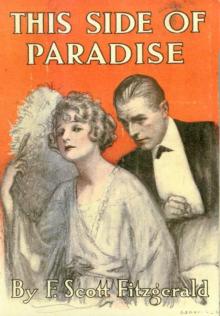 This Side of Paradise
This Side of Paradise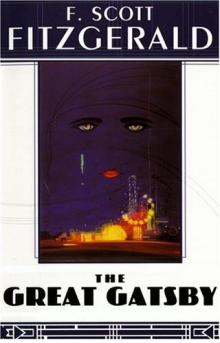 The Great Gatsby
The Great Gatsby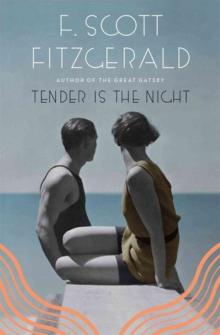 Tender Is the Night
Tender Is the Night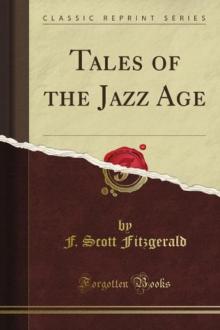 Tales of the Jazz Age (Classic Reprint)
Tales of the Jazz Age (Classic Reprint)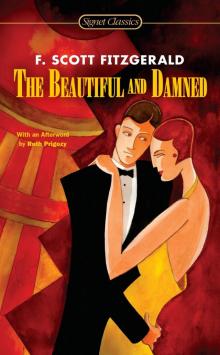 The Beautiful and Damned
The Beautiful and Damned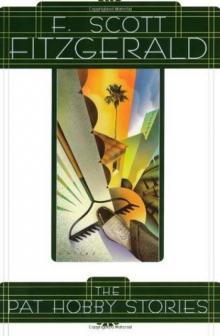 The Pat Hobby Stories
The Pat Hobby Stories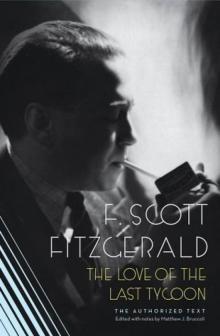 The Love of the Last Tycoon
The Love of the Last Tycoon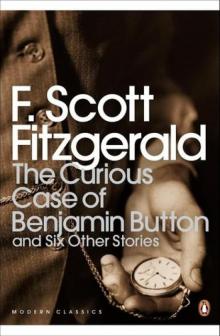 The Curious Case of Benjamin Button and Six Other Stories
The Curious Case of Benjamin Button and Six Other Stories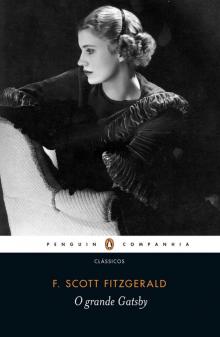 O Grande Gatsby (Penguin)
O Grande Gatsby (Penguin)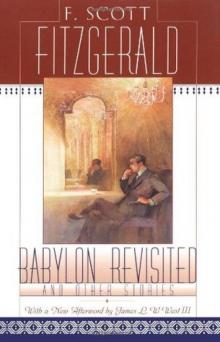 Babylon Revisited and Other Stories
Babylon Revisited and Other Stories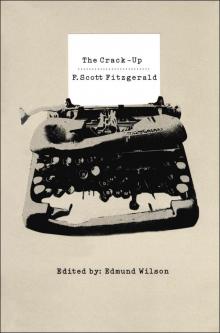 The Crack-Up
The Crack-Up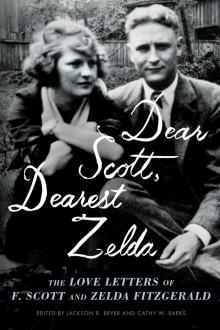 Dear Scott, Dearest Zelda
Dear Scott, Dearest Zelda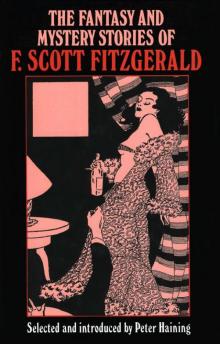 The Fantasy and Mystery Stories of F Scott Fitzgerald
The Fantasy and Mystery Stories of F Scott Fitzgerald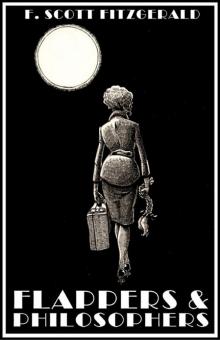 Flappers and Philosophers
Flappers and Philosophers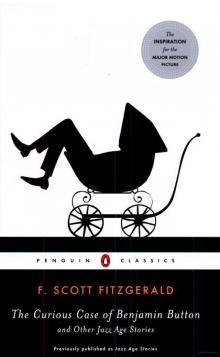 The Curious Case of Benjamin Button and Other Jazz Age Stories (Penguin Classics)
The Curious Case of Benjamin Button and Other Jazz Age Stories (Penguin Classics)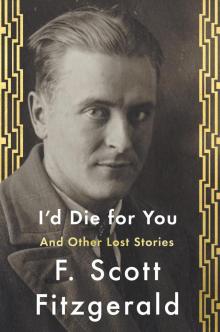 I'd Die For You
I'd Die For You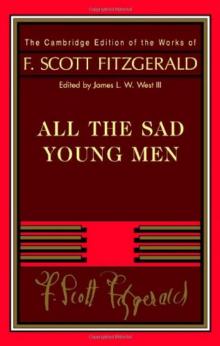 All the Sad Young Men
All the Sad Young Men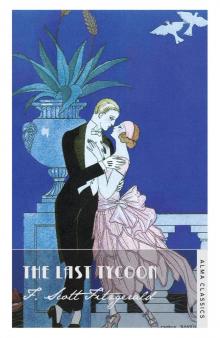 The Last Tycoon
The Last Tycoon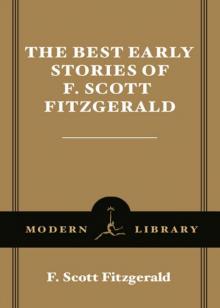 The Best Early Stories of F. Scott Fitzgerald
The Best Early Stories of F. Scott Fitzgerald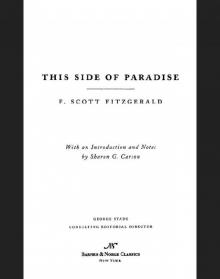 This Side of Paradise (Barnes & Noble Classics Series)
This Side of Paradise (Barnes & Noble Classics Series)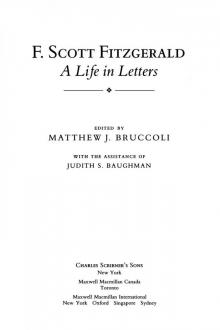 A Life in Letters
A Life in Letters Beautiful and Damned (Barnes & Noble Classics Series)
Beautiful and Damned (Barnes & Noble Classics Series) The Curious Case of Benjamin Button and Other Jazz Age Stories
The Curious Case of Benjamin Button and Other Jazz Age Stories Tales of the Jazz Age
Tales of the Jazz Age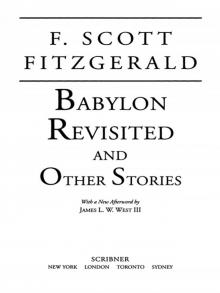 Babylon Revisited
Babylon Revisited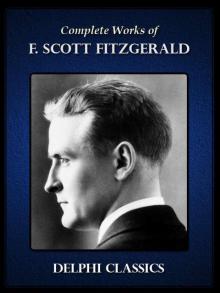 Complete Works of F. Scott Fitzgerald UK (Illustrated)
Complete Works of F. Scott Fitzgerald UK (Illustrated)